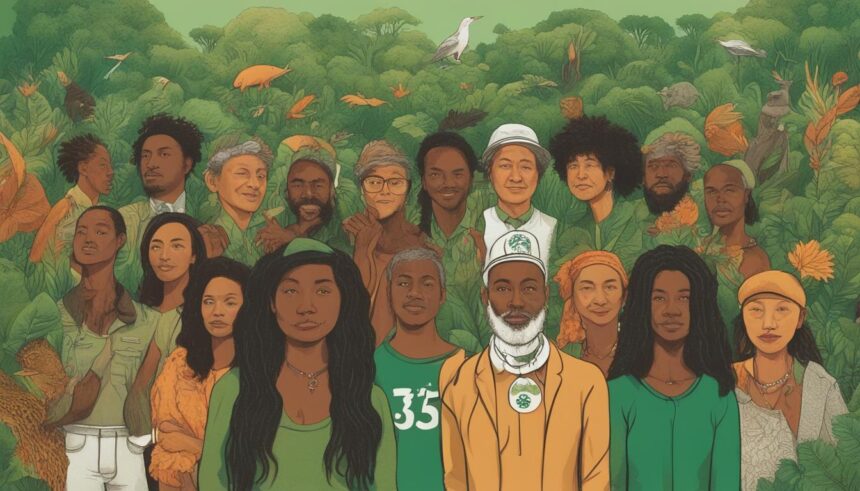The Goldman Environmental Prize marks its 35th anniversary by recognizing the pivotal role of grassroots activists from across the globe in driving significant environmental change.
The Goldman Environmental Foundation proudly marked a milestone moment this year as it celebrated 35 years of the Goldman Environmental Prize—an award that stands at the forefront of recognizing the endeavors of grassroots environmental activists worldwide. Since its inception in 1989, the Prize has spotlighted environmental heroes across each of the world’s continents, demonstrating the power and impact of committed individuals in the vanguard of environmental conservation.
For the year 2024, seven exceptional activists from South Africa, Brazil, Australia, India, Spain, and the United States have been recognized for their significant contributions, reflecting the global nature and reach of the Prize. Each winner’s story is a poignant testament to the courage and persistence required to bring about environmental change in the face of often overwhelming odds.
From South Africa, activists Nonhle Mbuthuma and Sinegugu Zukulu achieved a monumental victory by halting seismic testing for oil and gas exploration along the Eastern Cape’s Wild Coast. Their determined efforts safeguarded a remarkably biodiverse marine area, protecting it from the invasive procedures that threaten marine life. This region, known for its vibrant ecosystems, is central to the local communities who depend on it for their livelihood and cultural heritage.
In India, Alok Shukla spearheaded a campaign that preserved 445,000 acres of vital forest land in Chhattisgarh. This area, recognized as the “lungs of Chhattisgarh,” was under threat from the establishment of 21 coal mines, which would have devastated the biodiversity and disrupted the ecological balance critical to the region.
Further in Europe, Teresa Vicente from Spain led a groundbreaking campaign to secure legal protection for the Mar Menor lagoon, Europe’s largest saltwater coastal lagoon. Intense agriculture practices and unchecked urban sprawl had pushed this vital ecosystem to the brink of ecological collapse, prompting the need for stringent protective measures.
From the shores of Australia, Murrawah Maroochy Johnson stood firm against the development of the Waratah coal mine which posed immense risks to Queensland’s environment and its Indigenous cultures. Her successful legal challenge not only protected the land but also set a precedent for other Indigenous groups to defend their environmental and cultural rights.
In the United States, Andrea Vidaurre’s work in California has led to transformative changes in transportation regulations, significantly cutting down emissions from trucks and rail systems. Her efforts are set to improve air quality dramatically and boost the transition towards zero-emission vehicles over the next decade.
In South America, Marcel Gomes of Brazil exposed and curbed illegal deforestation activities linked to JBS, the world’s largest meatpacking company. His investigative work and the subsequent campaign ensured that major European retailers halted the sale of products associated with environmental degradation in Brazil’s critical ecosystems.
Reflecting on these formidable achievements, John Goldman, president of the Goldman Environmental Foundation, emphasized the collective power of these activists, describing them as a “collective force” and a “growing global movement” that inspires hope and change.
These environmental champions were honored in two prestigious ceremonies in San Francisco and Washington, DC, which brought together diverse communities to celebrate their victories and the enduring impact of the Goldman Environmental Prize. Such recognition not only celebrates individual achievements but also magnifies the global voice for proactive environmental stewardship, encouraging more individuals to take a stand for the planet.





